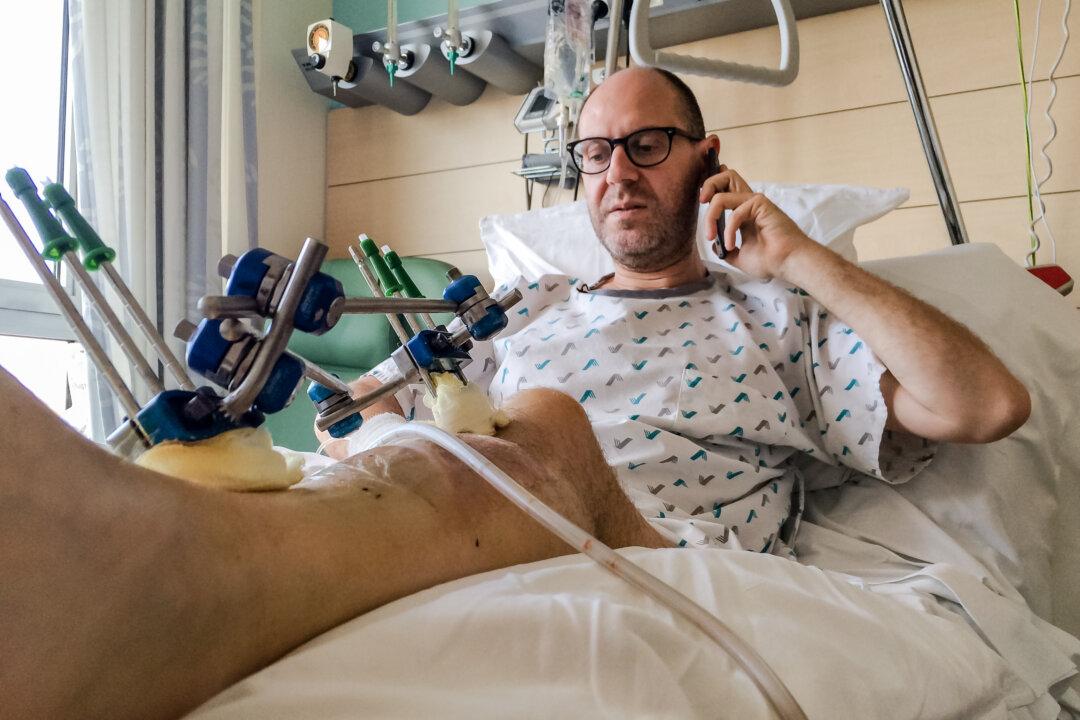BRUSSELS—In the days since Islamic State suicide bombers attacked the Brussels airport, survivor Walter Benjamin has been plugging away on Facebook from his hospital room, sharing his story, telling loved ones not to worry.
He has met the king of Belgium, the queen, and the country’s chief rabbi—but it was an airport technician who made the biggest impression.
Hassan Elouafi stepped over corpses at the airport to hand Benjamin a telephone so he could call his mother and tell her he was alive. At a time when many Muslims are being demonized because of the actions of a few, Benjamin feels the need to tell Elouafi’s story.

Walter Benjamin, a victim of the terrorist attack at Brussels Airport, talks with Hassan Elouafi, a technician at Brussels airport who is one of the key people who helped him after the bombs went off, in the Jette University Hospital in Brussels, April 4, 2016. AP Photo/Geert Vanden Wijngaert





